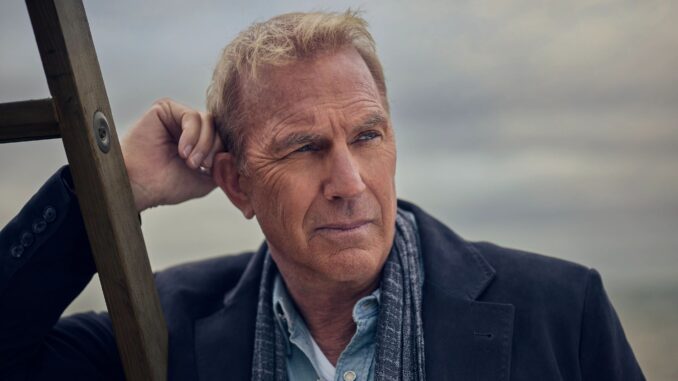
The world collectively held its breath, suspended in a moment of disbelief, when the news of Whitney Houston’s passing broke. A voice that had soared through the heavens, a presence that had filled stadiums and hearts, was suddenly silenced. In the aftermath of such a profound loss, the clamor of remembrance began, but it was Kevin Costner, her co-star from "The Bodyguard," who stepped forward to offer a eulogy that transcended celebrity and touched the raw nerve of human connection and grief. His words were not just a speech; they were an illustrative portrait, painted with the quiet, tender fierceness of a man who saw beyond the superstar to the vulnerable soul within.
Their on-screen chemistry in "The Bodyguard" was the stuff of cinematic legend. He, the stoic protector, she, the radiant, gifted artist. Their film immortalized "I Will Always Love You" and etched their faces into the collective memory as a symbol of unlikely devotion. But behind the glitz and the unparalleled vocal power, Costner seemed to glimpse something more fragile, something he felt compelled to shield. This sense of protectiveness, so central to their film, became the anchoring force of his eulogy.
When Costner took the podium at New Hope Baptist Church in Newark, the atmosphere was thick with a grief that felt both public and intensely personal. The eyes of the world were on him, waiting for platitudes, for a recounting of her triumphs. Instead, what emerged was a deeply personal narrative, a quiet man standing against the storm of speculation and tabloid headlines that had plagued Whitney’s later years. He didn’t eulogize a superstar; he spoke of a girl, insecure and questioning, who found herself navigating the blinding glare of fame with a voice that was both her greatest gift and, perhaps, her heaviest burden.
Costner’s words cut through the noise with the precision of a seasoned storyteller. He spoke of his initial fight to cast her, a Black woman, in the leading role, a testament to his belief in her innate talent and charisma. He recalled the early anxieties she harbored, the raw edges of vulnerability she rarely showed to the public. He remembered her asking him, "Will I be good enough?" and his firm, unwavering reply, "You are good enough." This anecdote, delivered with his characteristic gravitas, painted a poignant picture of a woman who, despite possessing one of the most powerful voices on earth, still sought reassurance, still felt the sting of self-doubt. It was a humbling revelation, illustrating the human behind the idol.
He talked about her beauty, not just physical, but the radiant spirit that emanated from her. Yet, he also gently, carefully, acknowledged the pressures that had built around her. He spoke of the "white noise" – the relentless scrutiny, the unfair expectations, the whispers that had at times drowned out the very music she was meant to make. In doing so, he offered a tender yet firm defense, illustrating how external forces had chipped away at a magnificent talent, leaving her vulnerable and exposed. His words were a shield, a final act of protection for a woman he respected and admired, reminding everyone that she was not just a voice, but a complex, struggling human being.
The most powerful illustration, however, was his re-contextualization of "I Will Always Love You." A song of romantic parting, it transformed under the weight of his eulogy into a soaring anthem of enduring respect, admiration, and a profound, shared understanding. He effectively repurposed the iconic lyrics, not just for himself, but for every fan in that church, and indeed, around the globe. He declared, with a quiet strength, that the world would always love her, not just for the songs, but for the girl with the voice, for the woman who dared to dream and soared higher than anyone imagined.
Kevin Costner's eulogy for Whitney Houston was a masterclass in illustrative storytelling, a testament to the power of seeing beyond the public facade. He peeled back the layers of stardom, gossip, and tragedy to reveal the essence of a woman he cherished. His words were a final, protective embrace, a quiet cowboy’s promise that her light, though dimmed too soon, would forever resonate. He didn't just talk about her loss; he illustrated the depth of it, the beauty that was taken, and the enduring love that, like her voice, would echo on, long after the silence settled.
